Businesses that provide professional services are terrified about the consequences of confidential information falling into the hands of the wrong people. Particularly when it is client data and especially when it is personal data.
The subsequent reputational damage could mean losing a client at best — or worse, losing the entire business. This is why companies spend so much time and money securing their IT systems against a breach. It’s the right thing to do.
But then they go and do something that renders all that pointless — they send out confidential information to their clients via email.
So, why is this a problem?
By default, email is not encrypted. Whilst modern email tries to encrypt data, if the email system you are sending to does not support it, the email will not be encrypted and could then be easily intercepted. And you would have no way of knowing…
When you send an email, do you know where it will end up? In the inbox (hopefully!) of the person who’s email address you sent it to, yes.
But what if they have that email account on several devices?
And what if one of those devices is a tablet without a passcode, which has been left unattended on a coffee shop table?
And what if the email account of the person you are sending the information to has been compromised?
The bottom line: as soon as you send confidential data by email, you have lost control. Technically, it’s no longer your responsibility, but good luck getting a client to accept that excuse if it’s their data that has been breached!
Luckily for the four billion daily users of email, developers and cyber security experts are continuously coming up with ways to improve this ageing tech in the face of increasingly sophisticated attacks.
Secure email offers a safe and efficient alternative to regular email. Through robust encrypting, it ensures only your intended recipient can read your information.
Why is it important?
If you work for an accountancy or law firm, you’ll be used to dealing with massive amounts of highly confidential, sensitive data every day. There’s no way around it — you NEED to be able to send this information back and forth. Often, email is the simplest way.
For many companies — but especially those working in the finance and legal sectors — being able to communicate with external contacts without the risk of an inadvertent or deliberate data leak is vital.
An email leak here could prove incredibly costly — both financially and in terms of reputation and client confidence. Exposure of your clients’ data could damage your relationships with clients and hamper their trust in you, while a leak of valuable intellectual property could destroy your competitive advantage.
This is why it’s so crucial to ensure the information is sent as a secure message with a read receipt. That way, you’ll know it’s arrived safe and sound!
Mimecast: our secure email of choice
If you work for a financial or legal firm, chances are you’ll already have some sort of secure email solution in place. But hands up, how often do you bypass it because it’s simply too complicated and confusing to use?
Not the case with Mimecast…
Mimecast Secure Messaging provides a user-friendly, secure channel for sending and receiving sensitive information via email — using advanced encryption to ensure yours and your clients’ data stays completely confidential and protected.
You can quickly and easily upload emails and any attachments to the Mimecast Cloud, where they will be scanned for malware and checked against existing policies.
Granular message controls also mean you can also instantly revoke message access, require a read receipt, enforce message expiration dates or prevent ‘Reply’, ‘Reply All’ and printing — crucial if you want to make sure information doesn’t get into the wrong hands!
Is your firm’s email security up to scratch? If you want to keep your confidential information secure, our Business IT Support services can help. Get in contact today to find out more.







